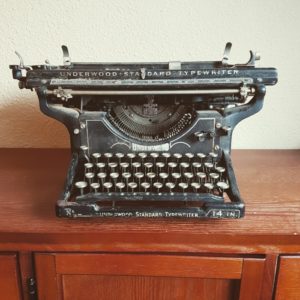At your school, in your car, in your home, in your bed: it follows you, begging for attention. How much time does it spend in your hand, or in your pocket? When was the last time you were away from it? How often does it vibrate to let you know it’s time to check it again? How often do you check it even when it doesn’t vibrate?
We should strive to achieve a higher level of control, and to treat our devices like tools rather than accessories. That is, treat them with respect and use them responsibly.

Lately I’ve been renegotiating the relationship I have with my phone. The smartphone itself is not designed to obstruct our productivity; it’s the software we choose to put on it that encumbers us. Social media has become so entrenched in our daily lives that it can feel impossible to simply cut it out. We can, however, change the way we engage with it.
The biggest distractor is notifications. They keep you coming back again and again. We should try to limit the number of notifications that come into our devices. Start by restricting your usage to one or two social media apps. For example, I try to only use Snapchat. Another thing you can do to limit notifications is eliminate users that you don’t need or want to be talking to. I try to only add people I know from real life.
If you still feel overwhelmed by notifications, turn them off and only check your social media during leisure time, and never when you are trying to be productive. In addition to these changes, keep productive apps (email, camera, calculator, calendar) on your home screen, and everything else in folders on another page. This makes it harder to open superfluous apps on autopilot. I keep music and podcasts on my home screen, as I use them frequently and don’t consider them to be distractors.
Personal technology has developed too quickly. It’s up to us to use it responsibly and show developers that we will not be slaves to technology. Smartphones are exceedingly powerful devices that give us access to a near-infinite amount of information; it’s up to us to turn that information into knowledge. If used correctly, our devices can help us to be happier, smarter, and more productive people. Make the change.
